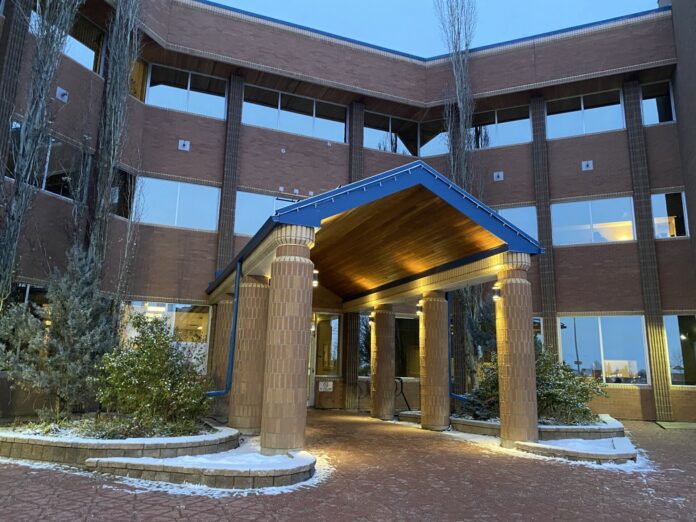The Province of Alberta’s 2025 budget is being met with some criticism, especially among those speaking on behalf of mid-sized cities.
Locally in Grande Prairie, mid-sized cities being “left behind” was a significant topic among local leaders, including City Councillor Dylan Bressey who says mid-sized cities like GP are consistently being left behind when it comes to provincial support on items like Family and Community Support Services funding.
“I continue to be worried about the increased pressure that provincial decisions are putting on municipal services, and on property taxes, I get that we’re in challenging times as a province, but I don’t think the solution to that is for the province to increase its property taxes by over 14 per cent,” he says.
Bressey is a city councillor, and sits on the ABMunis Board as one of three Directors of Cities up to 500K. He argues that preventative spending is simply more cost-effective for taxpayers, as providing support systems after the fact is just not as effective as stopping items like addiction before they even begin.
“We’re in a time where preventative social services are more important than ever, our residents need them, and it’s how we save money in the long term as taxpayers, yet, year after year, we see the province holding FCSS funding flat, so that the preventative social services that our communities rely on, aren’t getting adequate provincial funding,” he says. “It is a really good news story, the money that we are seeing invested by the province in mental health and addictions, I don’t want to downplay that intervention importance at all, but we can’t lose sight of prevention, it is way cheaper and more importantly, way better for individuals and society as a whole, if we can help people before they get unhealthy.”
Bressey adds that as a result, municipalities, especially mid-sized cities, are being forced to make up for the lack of funding on behalf of the province.
“I am tremendously disappointed by the growth and sustainability grant being flashed by the province, this was a new program that was meant to recognize the growth that’s going on in our province, thanks to our mid-sized cities, and it has disappeared after this year,” he says. “Once again, our cities, our mid-sized cities in particular, are being left behind, and are expected to pull a much bigger brunt of our challenging fiscal situation than other municipalities are.”
Mayor Clayton adds that a lack of significant capital investments, combined with a disparity of provincial funding between cities like Grande Prairie and Edmonton or Calgary is worrisome, as big cities continue to receive funding while mid-sized communities like Grande Prairie are left behind.
“I think that for Grande Prairie there were no significant capital investments, there’s a couple of small pieces that we’re thankful for, a small amount dedicated to Northwestern Polytechnic on the trades expansion facility,” she says. “You’ll hear lots of conversations around taxes in lieu for our municipality, we still have to go back and calculate the amount, but it doesn’t have near as much of an impact as it would in, say Edmonton, so for us, it will be in the hundreds of thousands, and for the City of Edmonton it’s significantly more.”
As a result, both Mayor Clayton and Dylan Bressey have indicated the City of GP, along with ABMunis, will be advocating on behalf of communities like Grande Prairie, to ensure members of the public, and MLAs are well-educated on the current fiscal realities in the Grande Prairie region.



